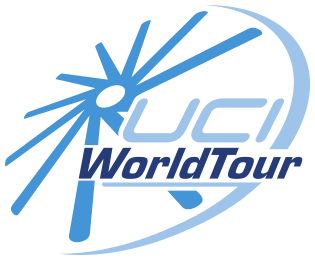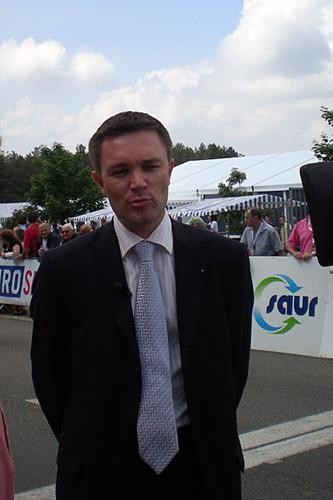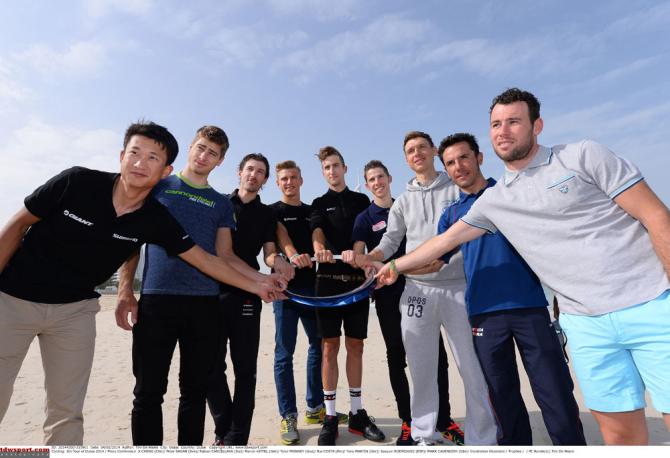Pro Cycling Council agrees to test UCI reforms to WorldTour
New rankings scheme to go forward in 2015



The Professional Cycling Council (PCC), now with a new president, David Lappartient, has agreed to put the UCI's proposed reform measures to the test in the coming years before the changes to team size and calendar are made permanent, the UCI announced today.
The UCI has proposed reducing the number of riders per professional team from 30 down to 22 in 2017, instead splitting the first division into two groups, each with its own developmental team of 8-10 riders.
The top level would be 16 teams with 120 days of racing, including the Grand Tours, Classics and other major stage races, and a second level of 8 teams with only 50 days of racing. The division two and three (currently Professional Continental and Continental) would remain unchanged.
The history of the WorldTour and its preceding series known as the ProTour has been fraught with controversy over the number of teams included in the top tier. Grand Tour organizers objected vehemently to the UCI forcing them to invite 18 or more teams, wanting instead to have more freedom to choose wild card teams.
Having only 16 teams in the top division would renew the kind of competition for rider points that existed prior to 2014, when there were more teams applying for WorldTour spots than the limit of 18.
Under the planned scheme, a two-year test period starting in 2015 would be employed, giving teams a chance to adapt to the new rules "before they become an obligation", the UCI press release stated.
10 teams will be chosen to participate in the test phase at the end of this season toward 2015, and all teams will be part of the experiment for the registration ahead of the 2016 season.
The latest race content, interviews, features, reviews and expert buying guides, direct to your inbox!
The top 16 teams of the 2014 WorldTour rankings will be given ProTeam status in 2015 if they meet the other ethical and financial criteria. The two remaining spots will be given to the next top two teams of the first or second division, or importantly, a new team, with the highest accumulated points total from their best five riders in the 2014 individual WorldTour ranking.
This rule opens the door for Fernando Alonso's planned project to make it into the top division, should he attract riders with enough points.
The same system will be employed ahead of the 2016 season. Once the experiment has been completed, the UCI ProTeams will cease to exist, being replaced by the term UCI WorldTeam for 2016, but still awaiting a permanent term for their class.
The PCC also agreed to a moratorium on new UCI WorldTour events. Any races wishing to move up to the WorldTour will have to wait until 2017. The PCC also included requirements for race organisers regarding logistics, accommodation, organisation standards, security, television production and broadcast, public attendance and budget for the first time.
The teams will also have to follow rules "that aim to change the culture of professional cycling in order to guarantee it is ethical", the UCI stated. "In particular, it is a question of obligations concerning the organisation of teams (composition and distribution of tasks), the preparation of riders (workload and care provided) as well as the employment and the certification of team personnel."
Toward that end, the PCC agreed to align with the MPCC (Mouvement Pour un Cyclisme Crédible), and to consult with the MPCC concerning regulations to combat doping.

